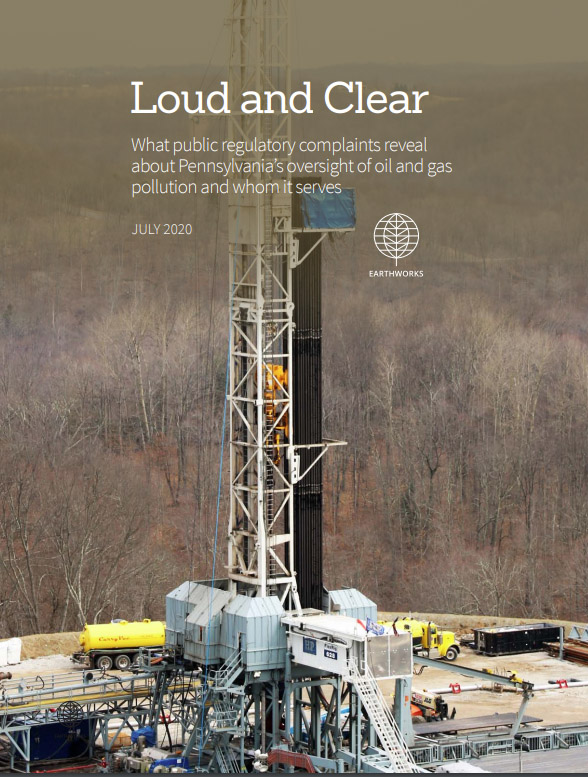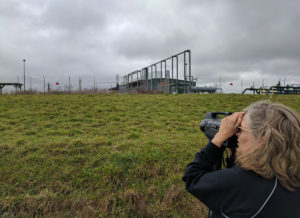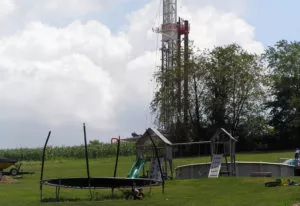The Oil and Gas Pollution Threat
The rapidly expanding oil and gas industry in Pennsylvania is releasing large volumes of greenhouse gases – despite scientific consensus that current fossil fuel pollution must be greatly curtailed to prevent the most catastrophic effects of climate change.1 This includes methane, which is 86 times more powerful than carbon dioxide over a 20-year time scale.2
At the same time, air quality is threatened in the communities near oil and gas operations. The main reason is increased pollution from methane and volatile organic compounds (VOCs), which a growing body of science associate with a range of health problems.3
Yet despite these trends, policymakers (and the general public) continue to assume that state and federal governments have both the will and the resources to adequately oversee a complex and increasingly polluting industry. Years of research and field experience by Earthworks have demonstrated that this is not the reality on the ground.4
Currently, state regulatory and enforcement agencies are:
- Inconsistent and insufficient in how they respond to the public
- Primarily focused on issuing permits quickly
- Underfunded and short-staffed
- Subject to the political influence of the oil and gas industry
Earthworks’ Field Investigations: Documenting Pollution to Protect People and the Planet
Earthworks started Field Investigations because the oil and gas industry is putting people and the climate at risk – and agencies are failing in their responsibility to prevent that from happening.
Most air pollution from oil and gas operations is invisible, making it easy for companies and regulators to dismiss residents’ concerns. Earthworks’ certified thermographers use optical gas imaging (OGI) to make visible the pollution caused by intentional safety releases, equipment failures, and operator errors in oil and gas fields.
Field Investigators then use that OGI evidence to file regulatory complaints with relevant state agencies and to document gaps in how they track and address oil and gas air pollution. It is a critical time to do so, with some states already committed to reducing oil and gas pollution and others moving in that direction.
This report details findings of the field team’s work in Pennsylvania from 2018- 2020.
Nearly all state regulatory agencies have a complaint system. If properly designed and implemented, residents can notify regulators about problems at oil and gas sites – being critical “eyes and ears” while gaining needed assistance from public agencies.
For oil and gas regulatory regimes to be effective – in both combating pollution and protecting the public – complaint systems must be accessible, usable, responsive, and transparent.
Robust complaint systems can help to:
- Reduce pollution that harms health and the climate.
- Build trust in agencies mandated to both work with industry and serve the public.
- Respond to community concerns and experiences.
- Make government agencies more effective.
- Foster agency and operator accountability



